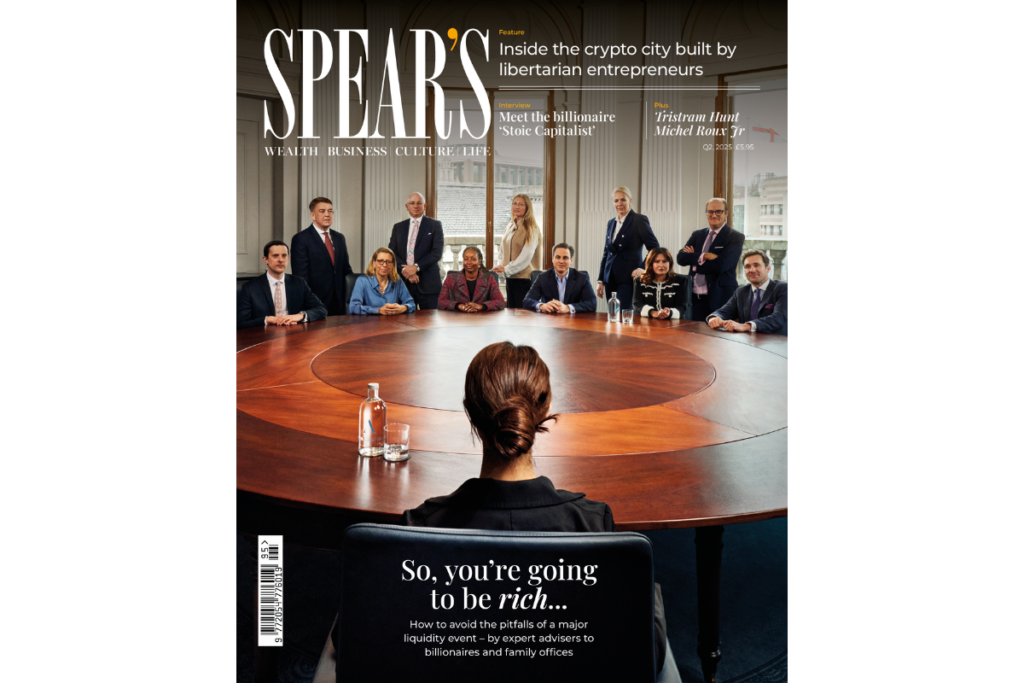
In his witty and irreverent 1940 book Where Are the Customers’ Yachts?, Fred Schwed highlighted the self-serving nature of Wall Street financiers, suggesting that stockbrokers and financial advisers are often more interested in self-enrichment than in the financial wellbeing of their clients.
Perhaps, in 2025, Schwed has a spiritual successor in the form of Ludovic Phalippou, a French-born professor of financial economics at the University of Oxford’s Saïd Business School, who has picked up the baton and is now pointing it towards the realm of private markets.
Over the past two decades, Phalippou has emerged as one of the leading critics of the private markets firms, challenging the narrative of high returns and low risk which continues to be propagated by the industry’s boosters. He posts frequently on the topic to his 33,000 LinkedIn followers, and he even has a website dedicated to bringing private equity to task (pelaidbare.com). When he speaks to me over the phone, he describes some private markets firms’ treatment of their customers as ‘abusive’.
[See also: Introducing Spear’s Magazine: Issue 95]
Raised on a farm near Montirat in south-western France, Phalippou was the first in his family to go to university. He earned a bachelor’s degree in economic engineering from the Toulouse School of Economics, before winning a scholarship to the University of Southern California in Los Angeles, where he gained master’s degrees in economics and mathematical finance.
His academic wanderings then brought him back across the Atlantic to INSEAD in Fontainebleau, where he completed a PhD in finance. It was when completing his doctoral studies that Phalippou’s interest in financial market malpractice was piqued – particularly by the scandals involving ‘late trading’ and ‘market timing’ in mutual funds, which prompted him to wonder whether similar ‘tricks’ might exist in private equity.
Since joining the Saïd Business School in 2011, Phalippou has spent much of his time delving into the opaque world of private markets, shining a light on management fees, risk assessment, governance structures, liquidity concerns and the measurement of returns.
One of his core assertions, summarised in his June 2020 paper, An Inconvenient Fact: Private Equity Returns and the Billionaire Factory, is that the real returns from private market investments, after accounting for fees and other charges, are significantly lower than what the industry claims. In the paper he revealed that investors had paid approximately $230 billion in performance fees over the previous decade – increasing the number of multibillionaires in the private equity industry from three in 2003 to 22 in 2020 – even though returns over the same period could have been matched by a much cheaper index fund.
[See also: The Spear’s Wealth Management Indices 2024]
Phalippou also criticised the industry’s reliance on internal rate of return (IRR), which he says is an inappropriate metric where underlying assets are not continuously traded. In the report he asked: ‘Why are trustees, investment teams, external managers, consultants, not seeing through this? Maybe because their livelihood depends on them not seeing it.’
In June 2024, Phalippou published a second blockbuster paper, The Trillion-Dollar Bonus of Private Capital Fund Managers, which was covered on the front page of the Financial Times under the headline ‘Private equity avoids high taxes on $1tn of fees amid fury over “absurd” loophole’. The study highlighted that, globally, private market managers had received $1 trillion in carried interest (a form of performance-related pay received by fund managers) since 2000.
The landmark finding rekindled the debate about the taxation of carried interest (it is currently taxed as capital gains rather than as income in both the US and UK), while the report itself also confirmed that the median private equity fund returns approximately 1.6 times investors’ money over four to five years – a performance that is comparable to long-term returns of US stocks.
[See also: the complete HNW Wealth Managers Index 2024 on Spears500.com]
Phalippou believes the nub of the problem is that performance metrics and marketing strategies in private markets are unregulated – creating scope for misleading practices and for investors to be duped. By contrast, mutual funds are legally required to provide transparent disclosures of their costs and charges using standardised metrics. Phalippou says he would like a similar regulatory framework to be introduced to private markets.
‘You need an equal footing,’ he tells me. ‘You cannot have certain types of assets where it’s open season in terms of marketing, and terms and conditions.’
He argues the current situation leaves many investors, including institutions or HNWs, flying blind, ‘ignorant of the conflicts of interest, the fees they’ll pay, how the contracts work, and essentially handing over their money to a product whose terms and conditions they have no idea about. That’s a big issue.’
[See also: Choosing the right private client wealth management for you]
He adds the problem is not that gatekeepers – such as investment platforms, scheme sponsors – are failing to read through the funds’ terms and conditions, ‘it is that the terms and conditions are, in many cases, themselves abusive’.
He doesn’t hold out much hope that politicians and governments in the UK or US will seek to rein in the private markets industry over this. Indeed, he characterises governments on both sides of the Atlantic as a soft touch for private equity lobbyists. He says Paul Atkins, recently installed as chairman of the US Securities and Exchange Commission (SEC), ‘is a Trump guy, and we know what Trump thinks – that nothing should be regulated in private equity’. Private equity figures were among the biggest donors to Trump’s campaign.
Perhaps such political allegiances should be unsurprising. When the Biden-era SEC sought in 2023 to introduce rules that would have required managers to give investors standardised information about their fees and performance and, among other things, to obtain an annual audit for their funds to provide an independent verification of managers’ numbers, the industry took the SEC to court and got them thrown out.
In Britain, Phalippou says governments and regulators occasionally do take a look at the sector but invariably back off once they are subjected to lobbying. However, the Financial Conduct Authority has been probing private market valuations for the past year and is due to release its findings soon. Labour peer Prem Sikka suggests that one way of tackling abuses in the sector would be to abolish tax relief on interest payments.
Overall, Phalippou warns HNW investors to tread warily. If they do put money into the sector, he says they should understand that they are entering a labyrinthine system where transparency is lacking, conflicts of interest are rife and true performance often obscured. Using an analogy from Lewis Carroll’s Alice in Wonderland, he says: ‘Investors risk being drawn down the rabbit hole and into an upside down world where they don’t understand, where the rules of logic and reality are often distorted and the experience is unlikely to be anything like what they expected.’
This article first appeared in Spear’s Magazine Issue 95. Click here to subscribe







